Bigfoot: How the Primal Scream-headlined music festival is going ahead
- Published
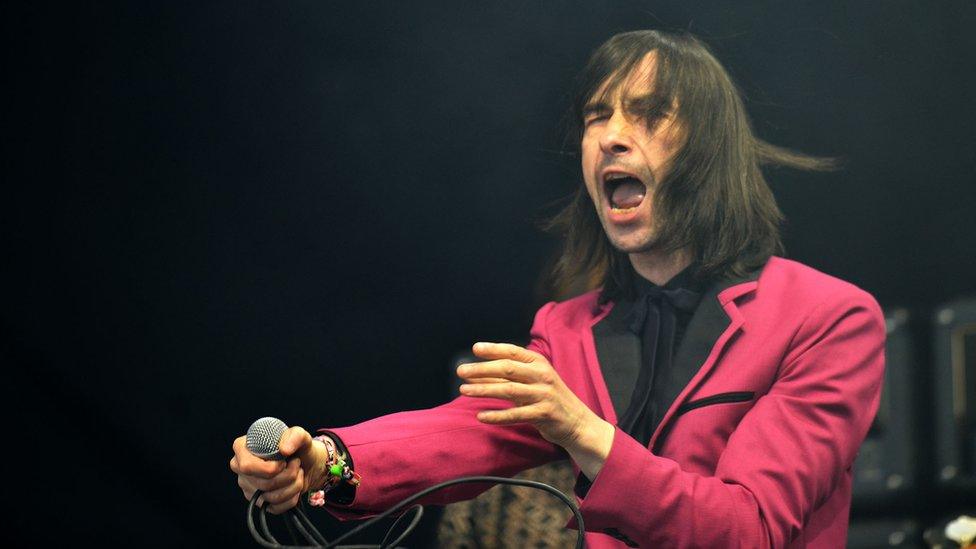
Bigfoot will be headlined by Primal Scream, with the Fat White Family and Hot Chip also on the line-up
The UK festival scene was dealt a blow on Monday, when the government announced a four-week extension to lockdown restrictions.
Leicester's Noisily Festival and Kent's Black Deer Festival were forced to cancel. Events scheduled in July say they're still weighing their options.
But one festival - called Bigfoot - will go ahead as planned this weekend, with Primal Scream topping the bill.
"We honestly can't wait to get out there," says frontman Bobby Gillespie.
"We rehearsed last weekend [and] we were all surprised at how tight we sounded - the last time we played was December 2019. I'm sure it'll be a release for everybody - audience and bands."
"It's going to be electric," agrees Bigfoot's co-founder Greg Wells, as he watches the festival's main stage being constructed.
"I'm not going to lie it's not been the easiest year, but we are here," he tells the BBC. "People say, 'Do you have confidence, do you have faith?' and I'm like, 'Nooo!' But you just keep going and take each day as it comes."
Allow X content?
This article contains content provided by X. We ask for your permission before anything is loaded, as they may be using cookies and other technologies. You may want to read X’s cookie policy, external and privacy policy, external before accepting. To view this content choose ‘accept and continue’.
An independent, boutique festival, Bigfoot was originally supposed to welcome 5,000 people to the grounds of Ragley Hall, near Stratford-Upon-Avon, this weekend.
After the government announced its four-stage roadmap in February, those plans were scaled back, and the capacity was limited to 4,000 to comply with current guidelines.
"When they announced the roadmap, we felt hard done by because we missed step four [and the end of lockdown] by three days," says Wells.
"But we built our event plan within step three and now we feel, 'Thank goodness we weren't scheduled for a week later'. We'd have had to either cancel it or re-plan everything'."
Tents, masks and bubbles
Fans attending the three-day festival will get to see performances from Fat White Family, Hot Chip, Sports Team and Erol Alkan.
Before they go, they'll be required to take a lateral-flow test, even if they've been vaccinated. On-site parking and campsites have been enlarged to allow for social distancing, and audiences will be asked to wear masks in front of the stage.
As the event is also a craft beer and food festival, organisers will provide table service to avoid queues, and fans are being asked to remain within their own bubbles, of up to 30 people, at all times.
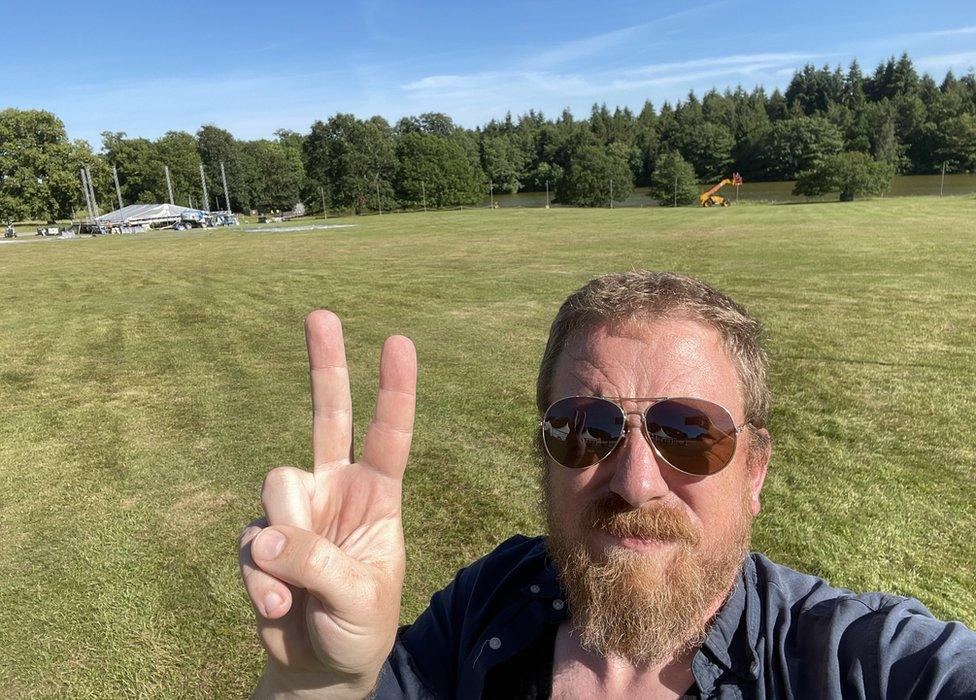
"Events and culture are the antidote to isolation," says Bigfoot's co-founder, Greg Wells
Having watched sports events like the European Championship, Wells is concerned that masks will be forgotten "as soon as anything dramatic or exciting happens", but he remains optimistic the audience will act responsibly.
"We're a very different beast to Reading & Leeds, or a straight-up electronic music festival, where your demographic would skew younger," he says.
"Someone described it as 'old ravers and young punks', so we've got a lot of families here, and managing crowds is a simpler task."
'A hammer blow'
Bigfoot's good fortunes are in stark contrast to the rest of the live music industry.
Tours by Dua Lipa, Harry Styles, Billie Eilish, Taylor Swift and Elton John have either been cancelled or repeatedly rescheduled. Major music festivals like Glastonbury and BST Hyde Park have been cancelled, while others have moved to September, in the hope that restrictions will have relaxed.
Against this backdrop, the government's decision to delay the end of lockdown earlier this week was a further "hammer blow", said LIVE, the organisation that represents the UK live music industry.
"There remains uncertainty over whether the industry should plan to restart later in summer or not at all, whether there will still be requirements for limited capacity, and how the government plans to support the sector financially as it remains closed over the following weeks," said the body in a statement.
For many, however, it is already too late.
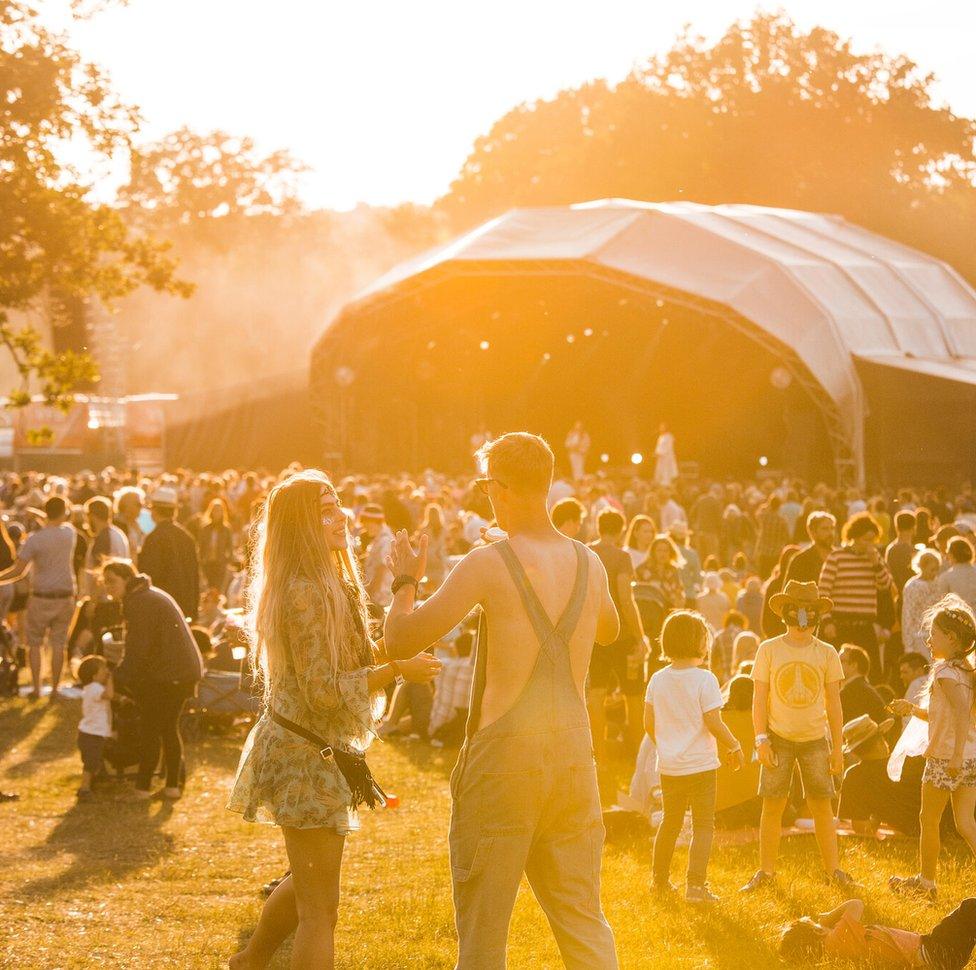
The Black Deer Festival took the "devastating" decision to cancel their 2021 event after the government's announcement this week
Gill Tee, who organises the Black Deer Festival, had to cancel her event with just four days notice this week.
"I actually cried," she says. "When I come out and look at the 3,500 acres of beautiful countryside and see where our festival should be, it is truly devastating."
She adds that she knows of people in the live events industry who have taken their own lives due to the strain of the pandemic.
"It's endless, the repercussions of this. This isn't a quick fix. This is our suppliers who have earmarked all of their kit to come to our site and turned down other jobs; it's the artists, who have been so amazing; and the agents.
"It's a whole raft of people that have been affected by this. This is people's lives."
'A mess'
Wells says his heart goes out to his fellow festival organisers.
"Event people are, by nature, creative problem solvers and this year we have pushed that to an extreme - but I don't know how you'd be able to reframe a whole plan in two weeks."
With a series of food festivals planned around the UK in July and August, he will also be affected.
"The next one is in two weeks so we are in a bit of a mess about the rest of our summer. Well, not a mess but we have a lot of work to do."
However, there are hopes that a government test event this weekend will open up the rest of the summer festival season; as 10,000 people descend on Castle Donington for a scaled-back version of the Download festival.
Earlier pilot gigs in Liverpool and London suggested the spread of Covid-19 would be relatively low at such events.
Around 5,000 fans packed into a big top in Liverpool with no masks or social distancing
For now, though, Wells is just looking forward to a long-awaited weekend of live music.
"When Primal Scream play Come Together, it'll be deeply emotional - not just for everybody watching, but for the band too," he says.
"Actually, a lot of the bands want to come and stay for the weekend. There's a real clamour to be here."
"So even though it'll be small and it will be boutique, I think to be outdoors and to see live music and just be around other people will be really, really special."
Gillespie says he just wished the were more gigs to come... Primal Scream only have four dates booked over the summer.
"They are kind of spread out and I wish they were all together - because you get on a roll, like a football team when they're surfing that big wave of success.
"It's like you get match fit and then you don't have another game for another month!"

Follow us on Facebook, external, or on Twitter @BBCNewsEnts, external. If you have a story suggestion email entertainment.news@bbc.co.uk, external.
- Published15 June 2021
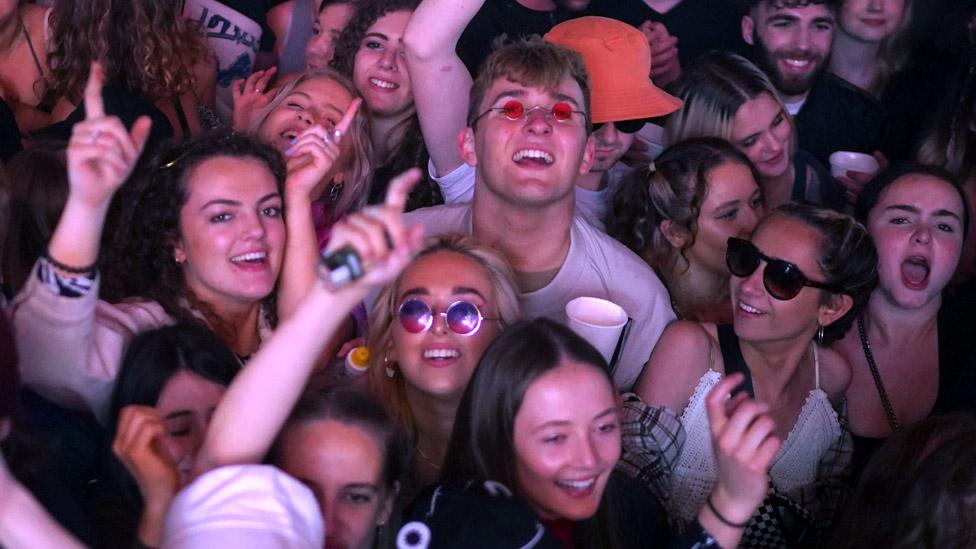
- Published27 July 2021
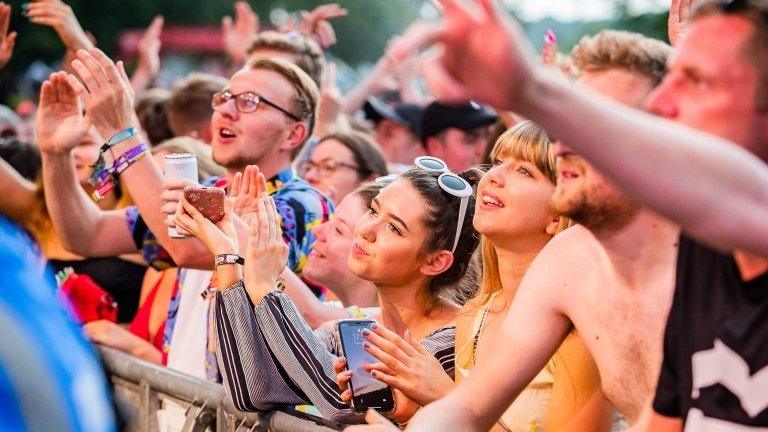
- Published23 May 2021
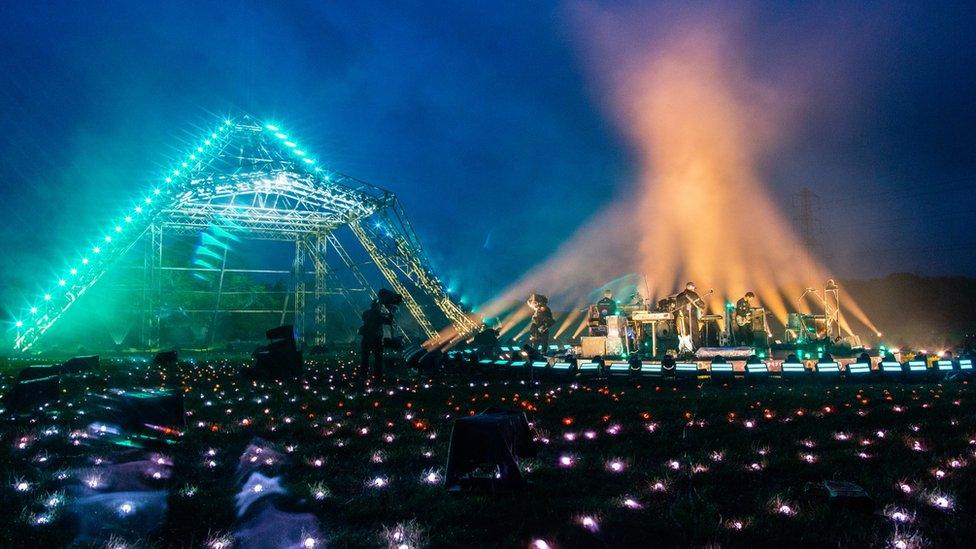
- Published3 May 2021
